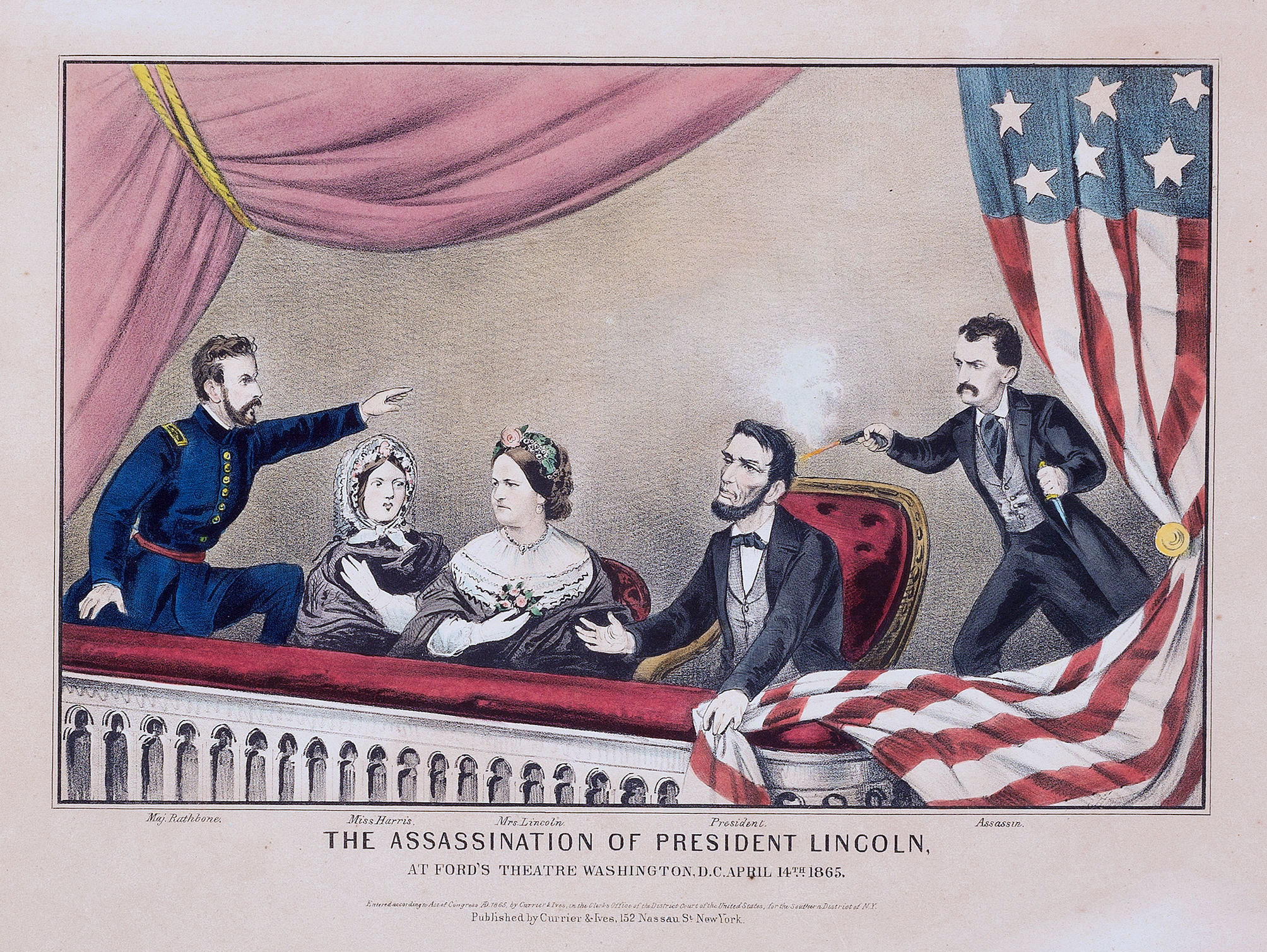
Top Dog
Underdog

(Image from Wikipedia.com)
John Wilkes Booth’s hatred of Lincoln grew as the Confederacy’s cause collapsed. On April 11, 1865, he heard Abraham Lincoln address a crowd outside the White House. Lincoln advocated extending the vote to educated African Americans and all black veterans. Booth turned to his companion Lewis Powell and exclaimed, “That means nigger citizenship. That is the last speech he will ever make.”
A Maryland native, Booth was born into one of the country’s leading families of actors. He was well known at Ford’s Theatre. On the night of April 14, he was welcomed as he passed up the stairs to the president’s box.
On April 14, 1865, the Lincolns and their two guests, Clara Harris and Maj. Henry Rathbone, arrived late to Ford’s Theatre for a production of Our American Cousin. As the president entered the theater, the crowd wildly cheered and the orchestra played “Hail to the Chief.” Lincoln set his silk hat on the floor, and the actors resumed where they had left off.
At about 10:15 p.m., John Wilkes Booth entered the presidential box, pointed a derringer pistol at the back of the president’s head and fired. Booth then pulled out a knife, slashed Rathbone, and jumped onto the stage, declaring “Sic semper tyrannis”—“Thus always to tyrants,” the Virginia state motto. Despite breaking his leg as he hit the stage, Booth escaped backstage and onto a waiting horse.
The Three-card Monte game itself is very simple. To play, a dealer places three cards face down on a table, usually on a cardboard box which provides the ability to set up and disappear quickly. The dealer shows that one of the cards is the target card, e.g., the queen of hearts, and then rearranges the cards quickly to confuse the player about which card is which. The player is then given an opportunity to select one of the three cards. If the player correctly identifies the target card, the player gets the amount bet (the "stake") back, plus the same amount again; otherwise, the stake is lost.
Source: https://en.wikipedia.org/wiki/Three-card_Monte